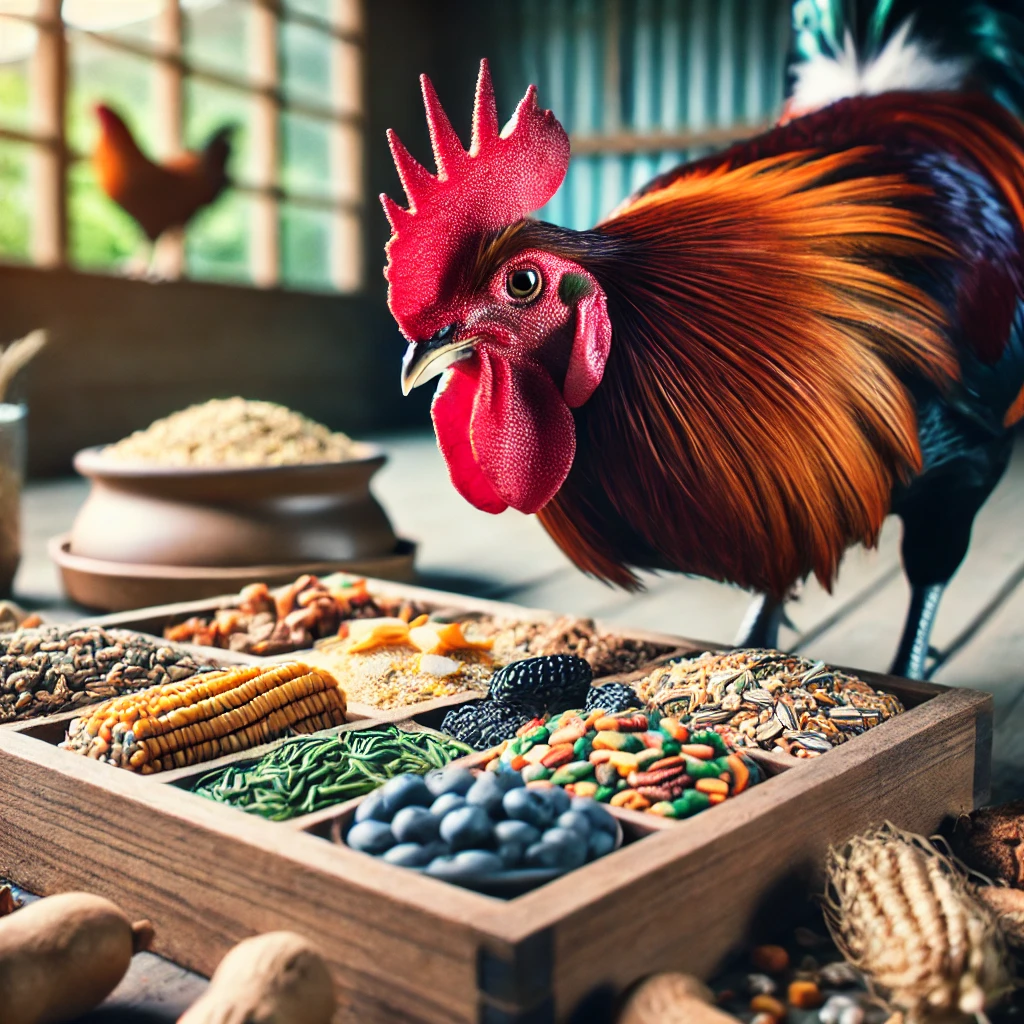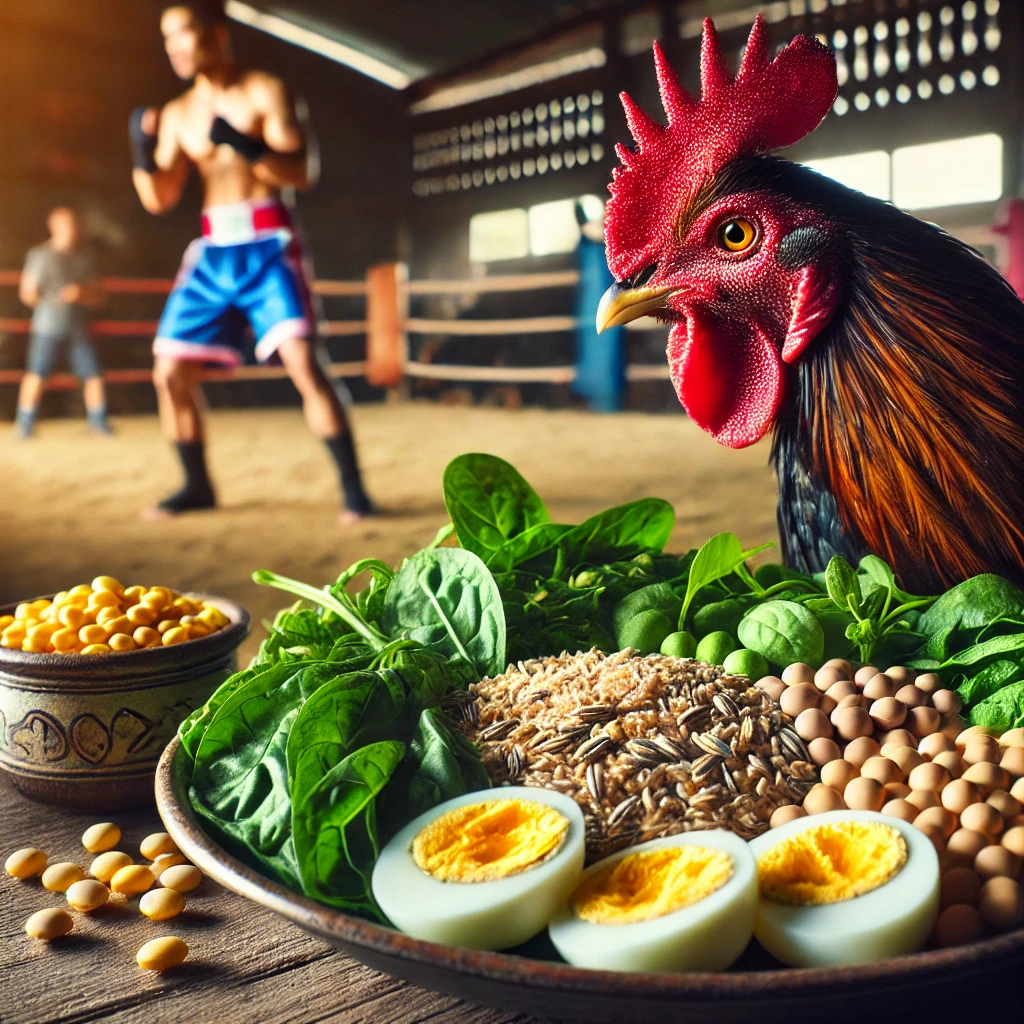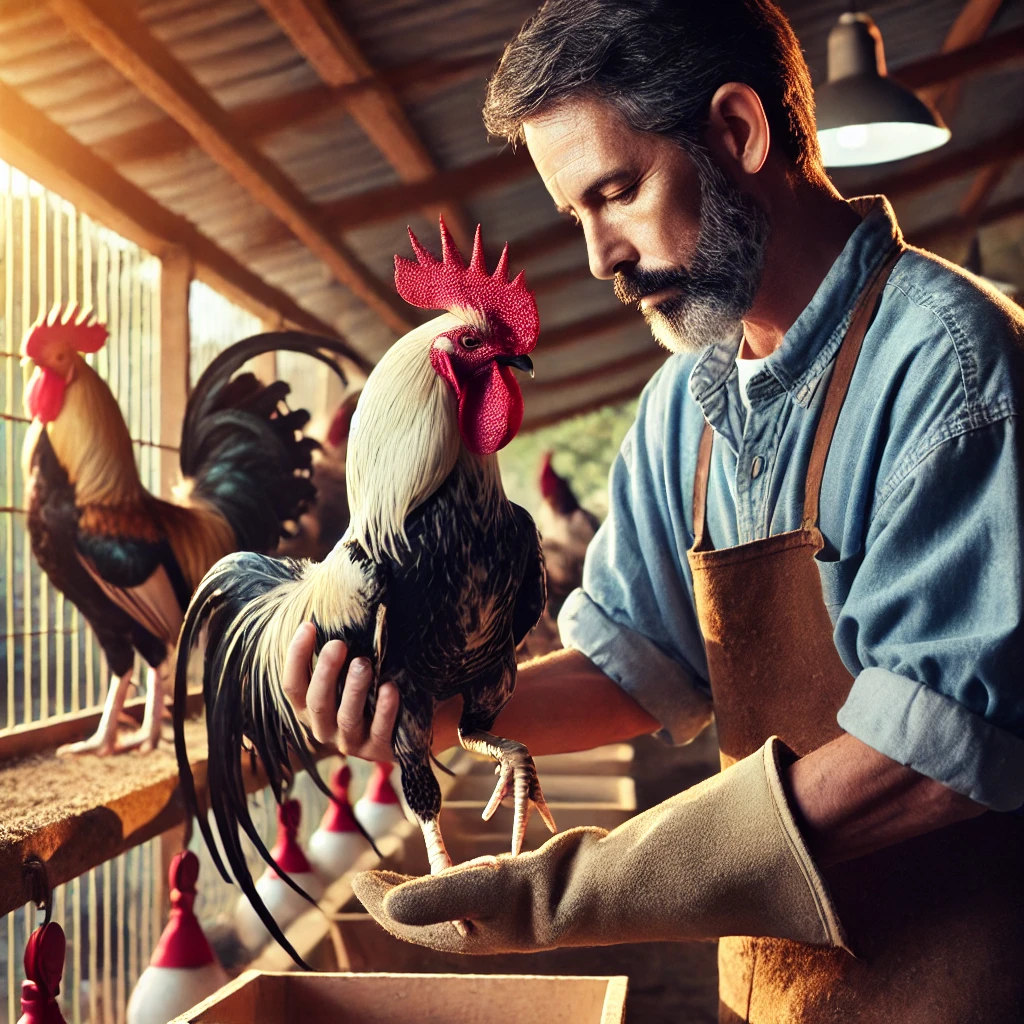
Proper Diet for Roosters: The Ultimate Nutrition and Care Guide
Outline
| # | Heading | Subtopics Covered |
|---|---|---|
| 1 | Introduction to Proper Diet for Roosters | Importance of nutrition, impact on health and performance |
| 2 | Gallos de Pelea Breeding Methods | Best breeding techniques, genetic selection, proper nutrition for breeding roosters |
| 3 | Una Peleas Gallos en Texas: What You Need to Know | Legal considerations, rooster care, competition rules |
| 4 | Gamecock Maintenance Guide | Daily care, grooming, training, and feeding schedule |
| 5 | Caring for Roosters in Competition | Pre-competition diet, hydration, stress management |
| 6 | Health Tips for Gamecocks | Common illnesses, preventive care, vaccinations |
| 7 | Essential Care for Fighting Roosters | Exercise routines, proper shelter, socialization techniques |
| 8 | Diet Plan for Roosters in Training | Meal plans, supplements, hydration tips |
| 9 | Performance-Boosting Rooster Diet | High-energy foods, best protein sources, vitamins and minerals |
| 10 | High-Energy Diet for Gamecocks | Carbohydrates, protein-fat ratio, feeding frequency |
| 11 | Gallos de Pelea: Understanding Their Nutritional Needs | Traditional feeding methods, modern diet enhancements |
| 12 | Balanced Diet for Gallos de Pelea | Macronutrients, micronutrients, best feeding practices |
| 13 | Feeding Guide for Fighting Roosters | Optimal meal timing, portion sizes, best ingredients |
| 14 | Nutrition Tips for Roosters | Common feeding mistakes, diet adjustments for different ages |
| 15 | Best Food for Gamecocks | Natural vs. commercial feed, top recommended brands |
| 16 | How to Prepare for Rooster Sparring | Conditioning exercises, stamina-building diet, recovery tips |
| 17 | Sparring Sessions for Gamecocks | Scheduling, frequency, nutritional needs before and after sparring |
| 18 | Effective Sparring Strategies for Roosters | Training techniques, performance optimization |
| 19 | Breeding Techniques for Gamecocks | Selecting the best breeding pairs, diet for breeding roosters |
| 20 | Tips for Successful Rooster Breeding | Genetic traits, feeding for fertility, best breeding seasons |
| 21 | Fueling Performance with Rooster Diet | Special diets for peak performance, meal frequency for optimal energy |

Proper Diet for Roosters: The Ultimate Nutrition and Care Guide
Roosters, especially those bred for competition, require a highly specialized diet to maintain peak performance, health, and endurance. A proper diet for roosters plays a crucial role in their training, energy levels, and overall success in competition. This guide covers essential feeding strategies, breeding techniques, and maintenance tips to ensure your gamecock remains in top condition.
Gallos de Pelea Breeding Methods
Breeding strong and healthy gallos de pelea (fighting roosters) requires a combination of genetic selection, proper nutrition, and controlled breeding techniques. Selecting the right breeding pairs is crucial, focusing on traits such as endurance, aggression, and muscle development. Diet plays a key role in fertility and chick development, ensuring the next generation of roosters is strong and competitive.
Una Peleas Gallos en Texas: What You Need to Know
In Texas, rooster fighting, or peleas de gallos, comes with various legal considerations. While some traditional events exist, it’s essential to understand the legal framework, ethical concerns, and proper care for competitive roosters in regulated environments. Roosters involved in sparring and competition require specialized training, diet, and health monitoring to ensure their well-being.
Gamecock Maintenance Guide
Proper maintenance of a gamecock involves:
- Daily Feeding Routine: High-protein diets, balanced carbs, and hydration
- Grooming & Hygiene: Feather care, nail trimming, parasite control
- Training & Exercise: Strength-building drills, agility training
Caring for Roosters in Competition
Competitive roosters need extra attention. Their diet should be rich in proteins, amino acids, and hydration solutions. Training sessions should be followed by proper rest and recovery meals, ensuring optimal muscle repair and endurance enhancement.
Health Tips for Gamecocks
- Common illnesses: Respiratory infections, mites, nutritional deficiencies
- Preventive care: Proper shelter, hygiene, balanced diet
- Vaccination & Supplements: Essential for immunity and disease prevention
Essential Care for Fighting Roosters
- Shelter & Living Conditions: Clean, spacious coops with proper ventilation
- Socialization & Training: Controlled sparring sessions to build confidence
- Diet & Hydration: Regular feeding with natural supplements
Diet Plan for Roosters in Training
- Morning Meal: Protein-packed grains and vitamins
- Afternoon Snack: Fruits, seeds, hydration
- Evening Meal: Energy-boosting foods with essential fats
Performance-Boosting Rooster Diet
- High-protein sources: Soybeans, boiled eggs, mealworms
- Essential vitamins: Vitamin B12, D3, calcium
- Carb sources: Brown rice, corn, sweet potatoes
High-Energy Diet for Gamecocks
Roosters in training require a diet rich in proteins and complex carbs. Omega-3 fatty acids and probiotics help improve digestion and energy levels, making gamecocks more resilient in fights.
Balanced Diet for Gallos de Pelea
A balanced diet includes:
- Protein (40%) – Lean meats, soy, eggs
- Carbohydrates (30%) – Corn, oats, wheat
- Healthy Fats (20%) – Fish oil, seeds
- Vitamins & Minerals (10%) – Fruits, greens
How to Prepare for Rooster Sparring
Before sparring, roosters should be well-fed, hydrated, and exercised. Electrolytes and protein supplements improve endurance, while post-sparring meals help in recovery.
Sparring Sessions for Gamecocks
- Frequency: 2-3 times per week
- Duration: 10-15 minutes per session
- Diet Adjustments: High-carb meals before, protein-rich meals after
Breeding Techniques for Gamecocks
Successful breeding involves:
- Choosing Strong Breeding Pairs
- Feeding for Fertility
- Providing Safe Breeding Environments

FAQs
1. What is the best diet for roosters in training?
A high-protein diet with moderate carbs and essential vitamins is best for training roosters.
2. How often should I feed my gamecock?
Feed roosters 2-3 times a day, ensuring a balance of proteins, fats, and hydration.
3. What supplements improve rooster performance?
Vitamin B12, calcium, and amino acids enhance muscle strength and endurance.
4. Can I feed commercial pellets to my gallos de pelea?
Yes, but it’s best to mix them with natural grains, proteins, and vegetables.
5. How do I keep my rooster healthy?
Maintain a clean coop, provide a balanced diet, and schedule regular health checks.
6. What is the best pre-sparring meal for gamecocks?
Carb-rich meals like rice and oats improve stamina before sparring.